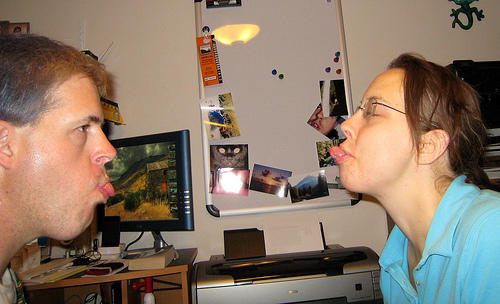Just fun? Not really
Spanish tongue twisters, like those in any other language, contribute to your learning process in three immensely interesting ways:
- Vocabulary – By virtue of their rhyming nature and the amount of focus they require as a part of the associated challenge, tongue twisters stick to your memory like glue and thus help augment your vocabulary very much like music does.
- Motivation – The bragging rights that come along if you are capable of rattling out a bunch of impossible-sounding phrases in an alien lingo is no insignificant motivation. This motivation, in turn, bolsters your stamina to further your cause, i.e., absorption of Spanish until native-level fluency.
- Fluency – By virtue of their very nature, tongue twisters are one of the best tools available to exercise your facial muscles and vocal chords and get acclimatized to producing Spanish sounds. Knowing the rules of Spanish pronunciation is one thing and being able to rapidly pronounce Spanish syllables in quick succession is another. If your goal is fluency in Spanish, tongue twisters will surely make life easier for you.
 |
| Tongue twisters are the best drills for pronunciation Photo credit: Christopher licensed CC BY-SA 2.0 |
The easier ones
Now, let’s strap up our boots and get ready to warm up our vocal chords with these most common Spanish tongue twisters; here we go with some of the easier ones:
- ¿Cuántos cuentos cuentas cuando cuentas cuentos? How many stories do you tell when you tell stories?
- ¡Qué triste estás, Tristán, con tan tétrica trama teatral! How sad you are, Tristán, with such a gloomy theatrical tale!
- Yo no compro coco, porque como poco coco como, poco coco compro. I don’t buy coconut, since as I eat little coconut, little coconut I buy.
- Busco al vasco bizco brusco. I’m looking for the rude cross-eyed Basque.
- El vino vino, pero el vino no vino vino, el vino vino vinagre. The wine came, but the wine didn’t come as wine, the wine came as vinegar.
- Si don Curro ahorra ahora, ahora ahorra don Curro. If Curro is saving now, now is Curro saving.
- Tres platos de trigo para tres tigres tristes. Three plates of wheat for three sad tigers.
- Pepe Peña pela papa, pica piña, pita un pito, pica piña, pela papa, Pepe Peña. Pepe Peña peels potatoes, cuts pineapple, blows a whistle, cuts pineapple, peels potatoes, Pepe Peña.
- Pablito clavó un clavito. ¿Qué clavito clavó Pablito? Pablito nailed a little nail. What little nail did Pablito nail?
For the daredevils
Now, time to take it to the next level. The tongue twisters that follow are the ultimate for the most daring players and being able to produce them flawlessly in loop would ensure a fluency closer to that of native speakers.
- Pedro Pérez Pereira, pobre pintor Portugués, pinta preciosos paisajes por poco precio para poder pasar por París. Pedro Pérez Pereira, poor Portuguese painter, paints precious landscapes for little price to pay for passage to Paris.
- El suelo está enladrillado. ¿Quién lo desenladrillará? El desenladrillador que lo desenladrillare un buen desenladrillador será. The ground is paved with bricks. Who will unpave it? The unpaver who unpaves it a good unpaver will be.
- Compadre de la capa parda, no compre usted mas capa parda, que el que mucha capa parda compra, mucha capa parda paga. Yo que mucha capa parda compré, mucha capa parda pagué. Brother of the brown cloak, don’t buy anymore brown cloaks, because he who buys many brown cloaks, pays for many brown cloaks. I, who bought many brown cloaks, paid for many brown cloaks.
- El niño está sosegado. ¿Quién lo desasosegará? El desasosegador que lo desasosiegue, buen desasosegador será. The child is tranquil. Who will disturb him? The disturber who disturbs him will be a good disturber.
- En la población de Puebla, pueblo muy poblado, hay una plaza pública poblada de pueblerinos. In the city of Puebla, a very populated town, there is a public plaza populated with Pueblans.
- Erre con Erre Cigarro,
Erre con Erre Barril,
Rápido ruedan las ruedas
Sobre los rieles del ferrocarril.
R with R cigar,
R with R barrel,
Quickly run the cars
Over the rails of the railroad.
This one is an excellent tool to help you wire your tongue for the Spanish “r” and oh-so-Spanish “rolled-rr” sounds (erre is the Spanish name for the letter “r”).
















0 comments:
Post a Comment